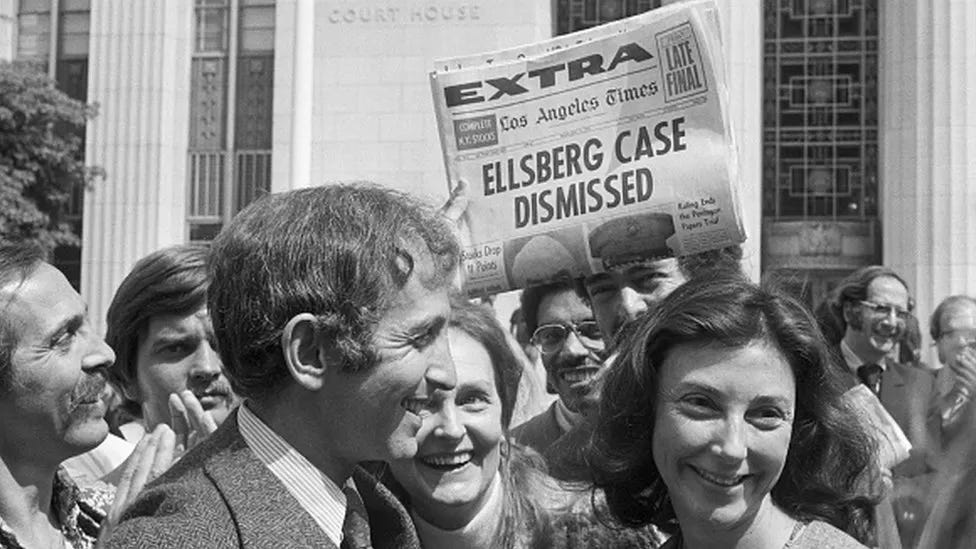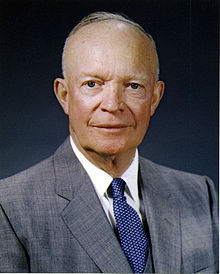W.J. Astore
How do we stop the next war built on lies from being waged?
(I prepared these notes for a talk I gave on “Truth-killers: The Corporate Media and the Military-Industrial Complex,” sponsored by Massachusetts Peace Action. David Swanson also spoke.)
I served in the U.S. military for 20 years, and for the last 15 years I’ve been writing articles that are generally critical of that military and our nation’s drift into militarism and endless warfare. Here are two lessons I’ve learned:
1. I agree with I.F. Stone that all governments lie.
2. As a historian who’s read and studied military history for most of my life, I agree that the first casualty of war is truth.
Because all governments lie and because lies are especially common during war, a healthy democracy must have an outspoken and independent media that challenges and questions authority while informing the public.
But the mainstream media (MSM) in America is neither outspoken nor independent. The MSM in America serves as stenographers to the powerful. Far too often, the U.S. military/government lies and leaks, the MSM believes and repeats.
The result is clear: disastrous wars (Vietnam, Afghanistan, Iraq) from which little is ever learned, enabled by a media culture that is deeply compromised by, or openly in league with, President Dwight D. Eisenhower’s military-industrial-congressional complex (MICC).
Here’s the fundamental issue: We need a skeptical and powerful media to deter the MICC from wars, war profiteering, and folly. The MSM should, and must, serve as a check on the MICC while holding it accountable when it fails. By doing neither, it serves various “big lies,” enabling future abuses of power by the national security state. There is no accountability for failure, so failure is neither punished now nor is it curtailed in the future.
Even when the MICC fails, and since the Vietnam War it has failed frequently, it gets more money. Consider the FY2023 Pentagon budget, which sits at $858 billion, a nearly inconceivable sum and which is roughly $45 billion more than the Biden administration asked for.
The challenge, as I see it: How do we stop the next war built on lies from being waged?
Something to ponder: Could a more critical, more courageous, truly independent media have shortened or stopped the Vietnam War? Iraq? Afghanistan?
In his famous speech warning Americans about the MICC in 1961, Eisenhower (Ike) said that only an alert and knowledgeable citizenry could guard against the acquisition of power by the MICC. This may indeed be why most citizens are not kept informed or are misinformed about the U.S. military and its wars. It’s hard to act when you’re kept ignorant. You’ll also be reluctant to act when you’re told to defer to the “experts” in the MSM, most of whom are deeply compromised, often by conflicts of interest that are kept hidden from you.
Military Mendacity
Put simply, the U.S. military, in its upper ranks, lacks honor. What matters most is reputation and budgetary authority. Sharing negative news with the media is the absolute last thing the military wants to do. Surprisingly, most in the MSM are willing to look the other way, assuming they even know of military mendacity and malfeasance.
What this means, essentially, is that the MICC is unaccountable to the people–the very antithesis of democracy.
Three big examples of MICC mendacity: The Pentagon Papers revealed by Daniel Ellsberg during the Vietnam War; the Iraq War and lies about WMD (weapons of mass destruction); and the Afghan War Papers. Even as the U.S. military was losing these three wars, military commanders and government officials spoke publicly and confidently of lights at the end of tunnels, of corners being turned toward victory. (Privately, however, they talked of serious problems and lack of progress.)

The MSM (with notable exceptions) largely repeated the happy-talk lies. Since 9/11, this is unsurprising, since the MSM leans heavily on senior retired military officers, CIA officials, and the like to “interpret” events in places like Iraq and Afghanistan. As journalist David Barstow showed, these “interpreters” were and are fed talking points by the Pentagon. Whatever this is, it’s not honest reporting. It’s not journalism. It’s state propaganda.
It’s not that the American people can’t handle the truth about “their” military. It’s that the MICC prefers to keep a lid on the truth, because the truth is often unfavorable to their positions, power, prestige, and profits.
There are many ways the MICC works with a complicit media (and a compliant Congress) to keep the truth from us.
1. Bad news is not reported. Or it’s classified or otherwise hushed up. Consider the My Lai Massacre in Vietnam or the “collateral murder” video from the Iraq War revealed by Chelsea Manning and Wikileaks.
2. Critical information is omitted. Coverage is edited. Consider the ban on showing flag-draped coffins by the Bush/Cheney administration, or official reports about drone strikes that omitted the true number of civilian/non-combatant casualties.
3. The military has its own PAOs (public affairs offices and officers) who feed news of “progress” and similar “good news” stories to the media. This is also true of the State Department. (See Peter Van Buren’s account, “We Meant Well,” of his Potemkin Village-like experience in Iraq.)
4. Ever-present appeals to patriotism and warnings that critical information will give aid and comfort to the enemy. Even worse, portraying critics as pro-Putin, as possible traitors, as in the NBC smear campaign against Congresswoman Tulsi Gabbard, abetted also by Hillary Clinton.
5. Run-of-the-mill propaganda. Consider, for example, how almost all U.S. sporting events include glowing coverage of the military and veterans. If all military members are “heroes,” how dare we question them! Instead, you’re encouraged to salute smartly and remain silent.
Media Complicity
Why is the MSM so hobbled and often so complicit with the MICC?
1. Intimidation. Critics are punished. Examples include Ashleigh Banfield, Phil Donahue, and Chris Hedges in the early days of the Iraq War. Think of Julian Assange today. Edward Snowden. Daniel Hale. Smart journalists know (or learn) that critics and whistleblowers are punished; cheerleaders are promoted, e.g. Brian Williams, demoted for stolen valor but redeemed for declaring his awe at “the beauty” of U.S. missiles.
2. Ratings/Economics. Recall that MSNBC fired Phil Donahue over concerns that his critical coverage of the Iraq War was turning off viewers, i.e. that the network wasn’t being seen as “patriotic” as rivals like CNN or Fox News, thereby losing market share and money.
3. Embedding Process. Reporters who want to cover war are often embedded with U.S. military units. They come to identify with “their” troops, who, after all, are protecting them from harm. The embedding process forges a sense of dependency and camaraderie that interferes with disinterested and balanced reporting.
4. Reliance on deeply conflicted experts from the MICC instead of independent journalists. Whatever else they are, retired generals and CIA directors are not reporters or journalists.
5. Corporate advertising dollars. Why air a report critical of Boeing or Northrop Grumman when that company is a major advertiser on your network? Why bite the hand that feeds you?
You don’t need a top secret “Mockingbird” project by the CIA to infiltrate and influence the MSM, as we witnessed during the Cold War and Vietnam. Today, the MSM and its owners acquiesce in their own infiltration, hiring retired CIA agents and similar senior government officials to give/sell their “unbiased” opinions.
Again, military contractors pay for ads and sponsor shows on TV. The media is not about to challenge or criticize a big revenue stream. And it’s not always a weapons maker like Boeing or Raytheon. Think of ExxonMobil. Their thirstiest customer is the U.S. military; ExxonMobil is unlikely to support media reports that criticize its biggest customer.
Meanwhile, there are precious few reporters and journalists willing to risk their careers to challenge the MICC. With so-called access journalism, if you reveal uncomfortable facts, you’ll likely lose access to the powerful, alienate your bosses, and probably lose your job.
Food for Thought: Journalists are selected and groomed for compliance to mainstream militarized agendas. They’ve learned and internalized what is acceptable and what isn’t. If they refuse to play along, they’re fired or shunted aside. (See Noam Chomsky and the manufacturing of consent.)
For the U.S. military, full-spectrum dominance includes information and the control of the same, including most especially in America.
A final shocking truth: The U.S. military lost in Vietnam, Iraq, Afghanistan, and elsewhere while avoiding responsibility. Indeed, its cultural authority and its command over the media have only grown stronger. Worse, the military promulgates, or goes along with, various stab-in-the-back myths that exculpate itself while mendaciously blaming the few good media outlets for accurate reporting about the MICC’s failings.
A crucial step in preventing future disastrous wars is a media culture that sees the MICC for what it is: a danger to democracy and liberty, as Ike warned us in 1961 in his farewell address. How we get there is a crucial issue; the failures above suggest remedies.
One remedy I wrote about in 2008: the major networks need to develop their own, independent, journalists who are experts on the military, rather than relying largely on retired military officers and other senior government officials.
We are told that America has independent media rather than state media like China or Russia. Yet, if America had official state media, would its coverage differ from today’s content? The MSM supports state and corporate agendas because that’s how it makes money even as it claims it’s “independent.”
A Couple of Anecdotes
A journalist colleague told me of his experience teaching students at one of America’s universities. His sense: most students today don’t want to be Bob Woodward and Carl Bernstein. They aspire to be on-air personalities who make six-figure salaries while being invited to all the right parties. They don’t want to afflict the comfortable while comforting the afflicted; they want to be among the most comfortable. Crusading for truth isn’t what they’re about. They seek to be insiders.
From the Robert Redford movie, “Three Days of the Condor.” If a whistleblower goes to the MSM (in the movie, it’s The New York Times), will the truth ever see the light of day? More to the point, if the American people do see it, will they even care?
What we’re witnessing in America, according to Matt Taibbi, is an “elaborate, systematized method of censorship and opinion control.” Taibbi mentions agencies like Homeland Security and Justice/FBI and their focus on “collecting domestic intelligence on a grand scale … seeking to distort the public’s perception of reality through mass moderation, via programs we’ve been told little to nothing about.”
While Taibbi, in his latest investigation, focused on social media and especially Twitter, the reality is that the MSM (and social media as well) is complicit with the government/military, collaborating on what “truths” are fed to the people while suppressing facts that are deemed dangerous, embarrassing, inconvenient, and otherwise not in the interest of the MICC.
With so many Americans now getting their news from social media sites rather than the MSM, that the government serves as a powerful content-moderator for what counts as “reliable” news on social media should disturb us all.
Again, it’s hard for Americans to serve as Ike’s “alert and knowledgeable” citizenry when they are fed lies, disinformation, and propaganda by the government and MSM.
Even more fundamentally, when corporations are elevated and protected as super-capable “citizens” and when citizens themselves are reduced to passive consumers—when corporations own the MSM while profiting greatly from war and militarism—there’s little hope of fostering freedom and of ever escaping from a state of permanent warfare.
This is where we are today.









